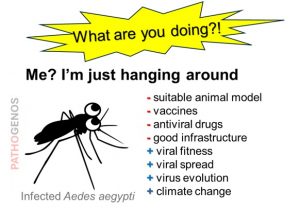
Fighting Dengue with AI: Nature-Inspired Mosquito Control
Figure 1. Municipal agent in Votuporanga, Brazil, fumigating a house. Source: Flickr Artificial intelligence (AI) is not just reshaping daily life, it is revolutionizing how

Harnessing Nature for Sustainable Dengue Control in Latin America
Figure 1. Aedes aegypti, the yellow fever mosquito. Picture taken by Muhammad Mahdi Karim from Wikipedia. Dengue fever remains a persistent global health threat, especially

Five factors behind Latin America’s Alarming Dengue Spike
Dengue Virus: A Common Mosquito-Borne Threat in Latin America Dengue, commonly known as breakbone fever, is the most widespread mosquito-borne disease worldwide, with Latin America

AI can discriminate against minorities and spread scientific misinformation
Note. This is updated from a previous blog post I published a long time ago in robotic healthcare on November 29,2018 >>> Hello, World! You

Can COVID-19 patients take medicine such as ibuprofen?
A systematic study based on the review of 89 articles related to coronaviruses and drugs taken by patients suffering from previous diseases showed that there is no evidence for or against the use of non-steroidal anti-inflammatory drugs (NSAIDs) such as ibuprofen to treat patients. with COVID-19. However, he noted that other types of drugs, such as TNF blockers and JAK inhibitors, are safe to use, and IL-6 could be beneficial in treating COVID-19.

Could vitamin D be the reason why COVID-19 affects Hispanics and blacks the most?
The authors suggest that vitamin D can likely reduce severe late stages of COVID-19 infection (as more studies are needed to verify this), while certainly benefiting bone and muscle health. One reason for its possible positive effects is the role of vitamin D in regulating and suppressing the inflammatory cytokine “storm” that leads to severe respiratory problems in patients with COVID-19.

